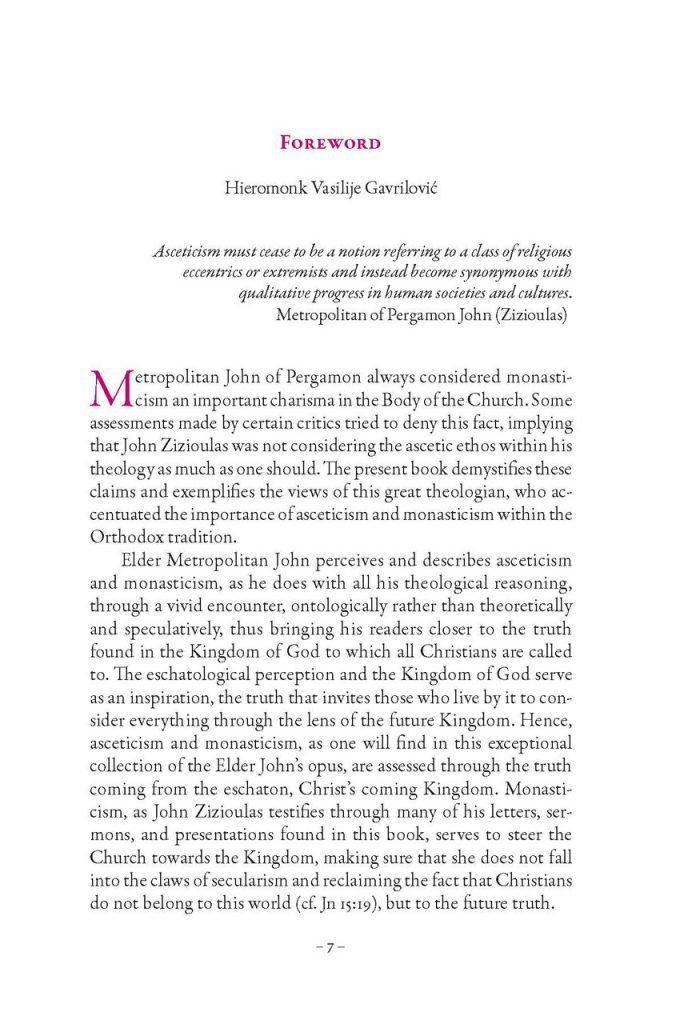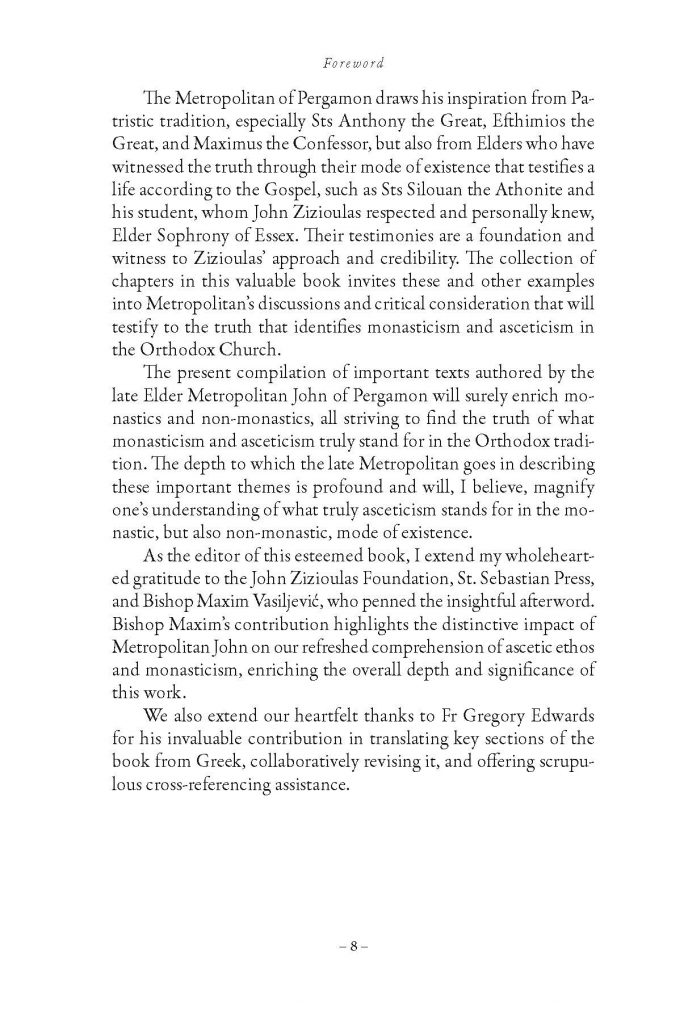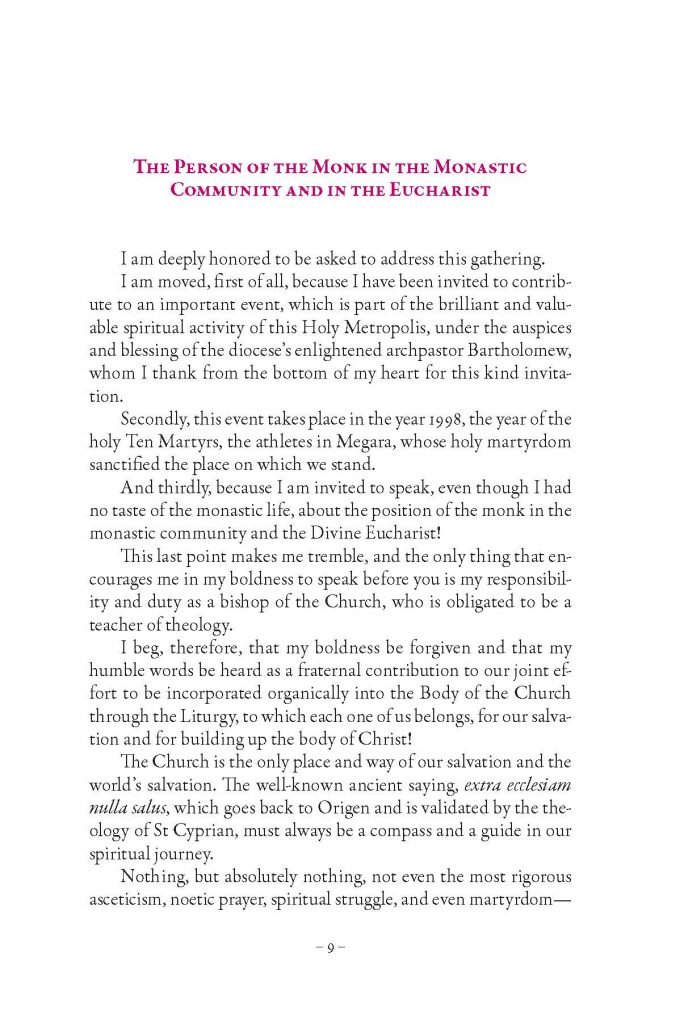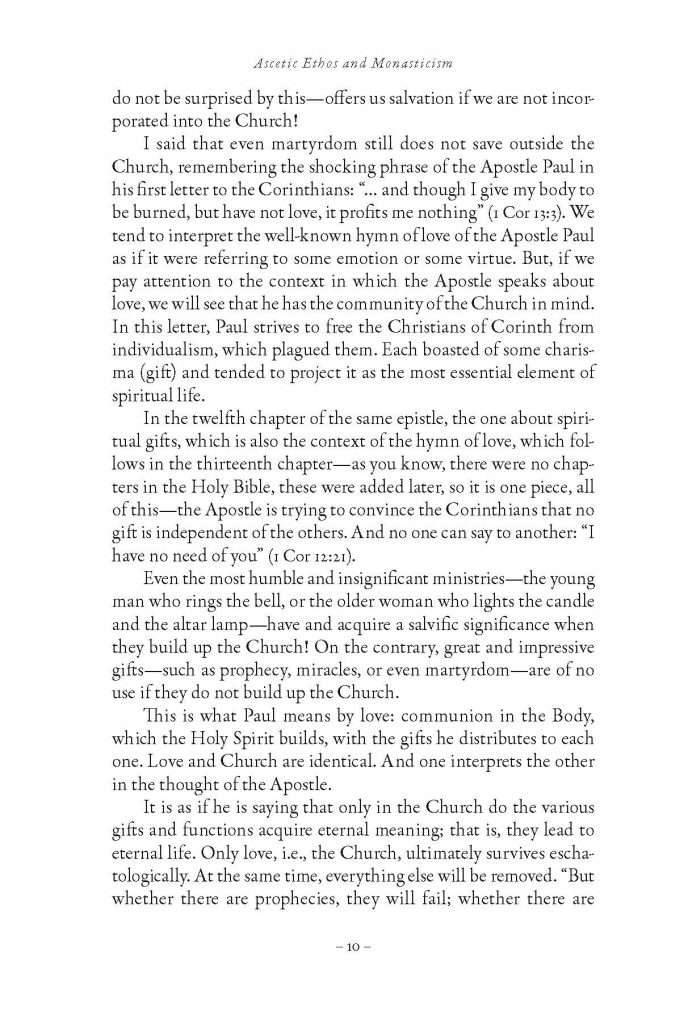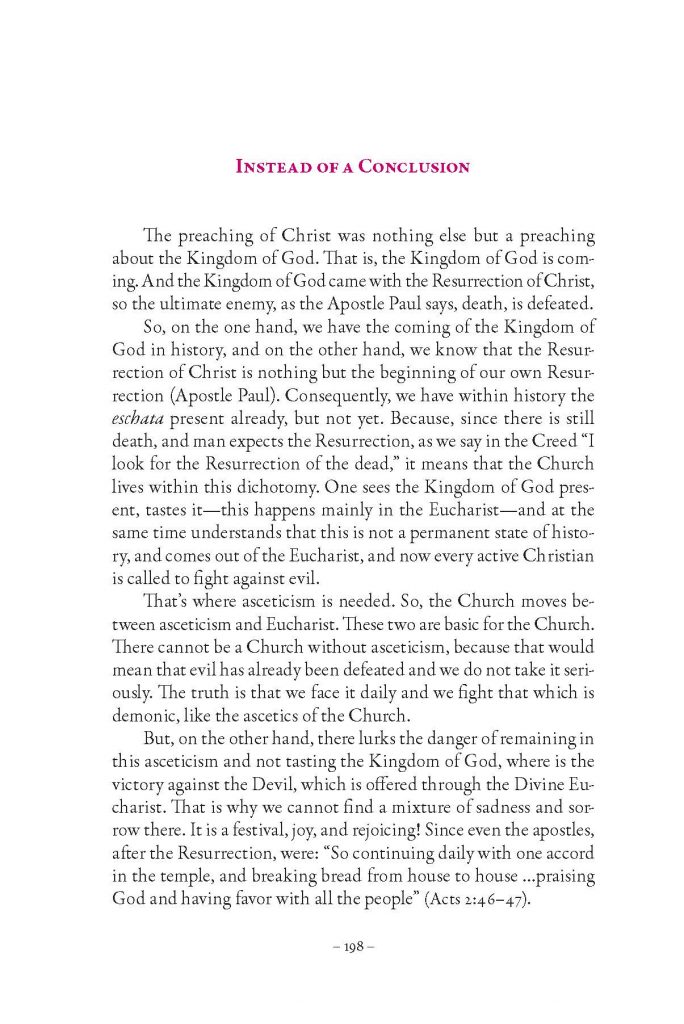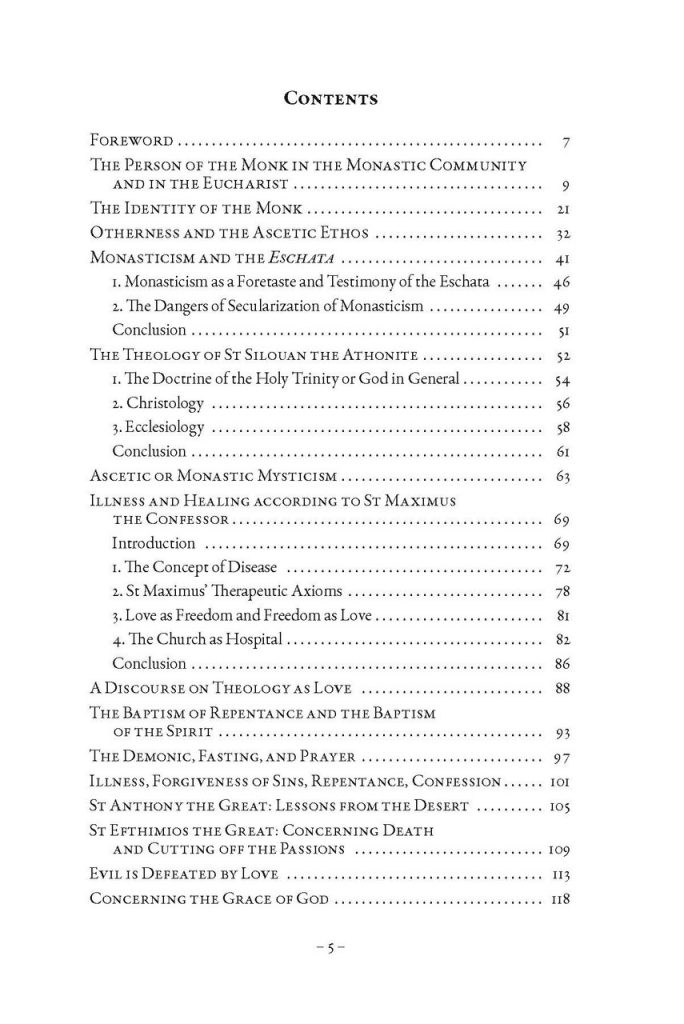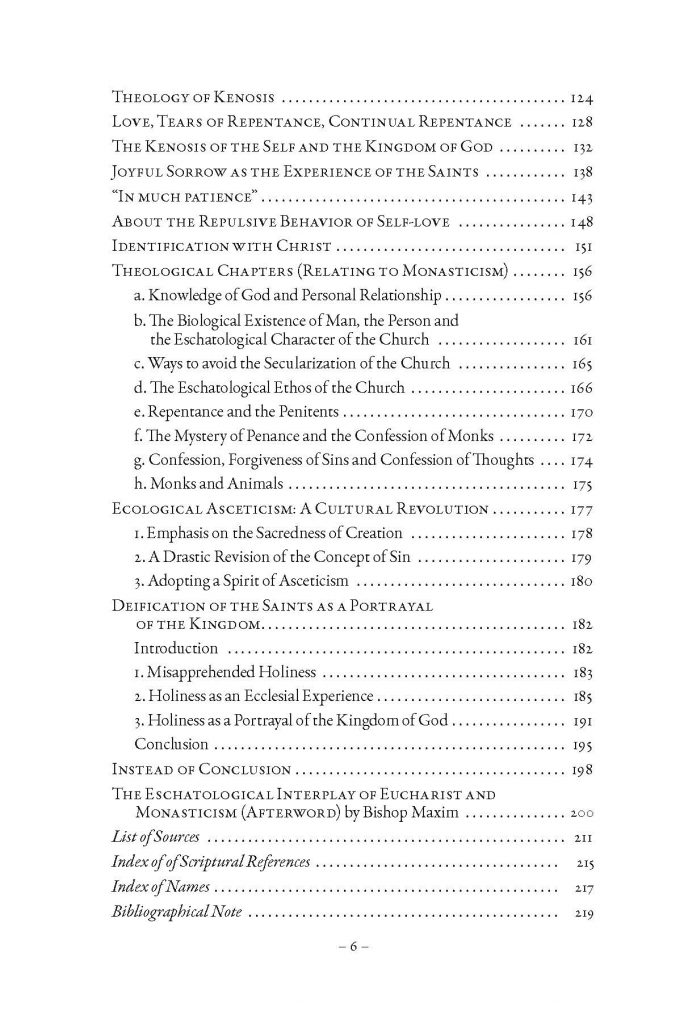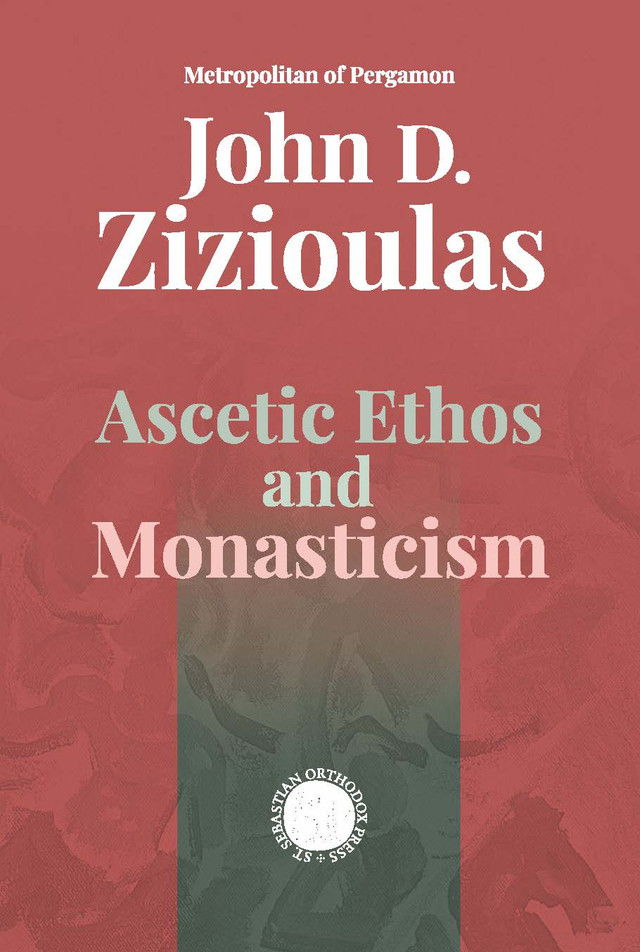Νέο βιβλίο του Μητροπολίτη Περγάμου Ιωάννη Ζηζιούλα για το ασκητικό ήθος και τον Μοναχισμό στα Αγγλικά: Metropolitan John D. Zizioulas’s, “Ascetic Ethos and Monasticism”, Edited by Hieromonk Vasilije Gavrilović, Los Angeles: Sebastian Press 2024
Ascetic Ethos and Monasticism
By: John D. Zizioulas, Metropolitan of Pergamon
Edited by Hieromonk Vasilije Gavrilović
“From an individual, the monk becomes a person, that is, a unique and unrepeated identity, which originates not from an introverted self-affirmation but from a loving relationship with others.”
Metropolitan John D. Zizioulas
Metropolitan John of Pergamon extensively drew from the ascetic tradition of desert Fathers to such an extent that it culminated in an entire volume dedicated to monasticism. This collection of topics delves into the profound and multifaceted relationship between monastic life, the Eucharist, and the broader theological and ascetic ethos within the Orthodox Christian tradition. It explores the identity and role of the monk, emphasizing the concept of otherness and the ascetic life as a testimony to the eschatological reality of the Church. The dangers of secularization are highlighted, alongside a detailed examination of the theology of St Maximus the Confessor and St Silouan the Athonite. The discourse extends into ascetic mysticism, with insights from the desert Fathers—asking what these professors of the desert would say today! Themes of repentance, the battle against demonic influences through fasting and prayer, and the transformative power of love and kenosis underscore the spiritual journey towards the eschatological ethos of the Church. The collection also addresses the ecological dimensions of asceticism, urging a cultural revolution through the reevaluation of sin and the adoption of ascetic practices to honor the sacredness of creation.
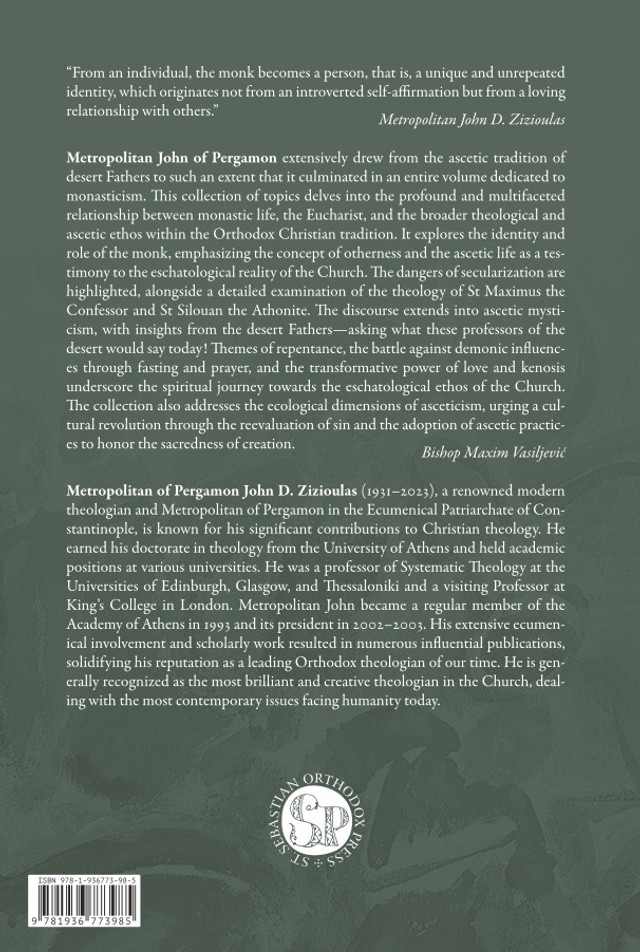
“Monasticism is a gift of the Holy Spirit. It is not a natural quality nor a human achievement. No one can become a true monk if he is not called to it by the grace of God. Monasticism, therefore, is one of the gifts of the Spirit. Perhaps one of the most important. Equal to martyrdom. And indeed, superior to the gifts that the Spirit gives inside the world. This is recognized by the Church when it gives precedence to hieromonks (monk priests) during sacred services…. This, therefore, the greatest and highest gift, the one inherent in the very existence (ὑπόστασις) of the Church, like all the charismas of the Spirit, risks—over the course of history—suffering many times like the Corinthian’s understanding of charismas at the time of the Apostle Paul. That is, to rise above the humbler charismas, to acquire self-sufficiency, and thus to be de-churched…. Nothing, but absolutely nothing, not even the most rigorous asceticism, noetic prayer, spiritual struggle, and even martyrdom—do not be surprised by this—offers us salvation if we are not incorporated into the Church!… Тhe fact that the tonsure of a monk is found in the Divine Eucharist is also significant for the reason that, without the Divine Eucharist, the monk’s life is a Cross without Resurrection.”
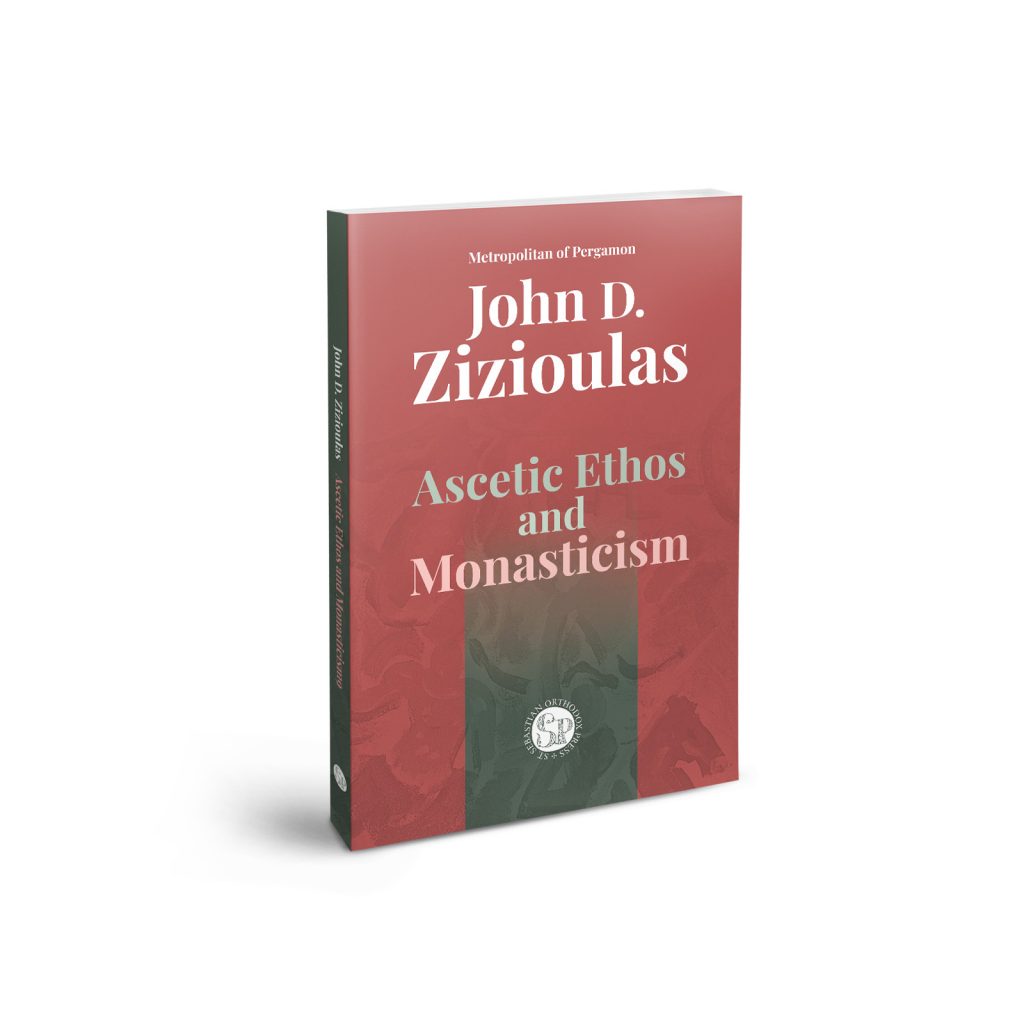
“In this way, monasticism returns to the Pauline spirit of ecclesiastical charismas. This spirit is the precondition for monasticism to exist within the Church. A monk who did not cut off the root of self-love did not succeed, even if he was freed from all the individual passions. By freeing himself from self-love, the monk becomes capable of being a member of the monastic community, to which he also belongs, and in this way ultimately becomes a member of the community of the Church…. From an individual, he becomes a Person, that is, a unique and unrepeated identity, which originates, not from an introverted self-affirmation, but from a loving relationship with others…. Theosis or deification, which is the highest goal of human beings, as well as of the monk, is, therefore, not an individual affair. It must come from communion with others in Christ. That is, from incorporation into the Body of Christ, which is the Church!…. Hence, one now understands why the ultimate goal of the monk can be nothing other than his worthy participation in the Eucharist.”
